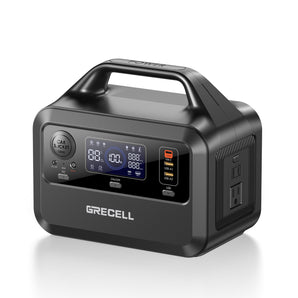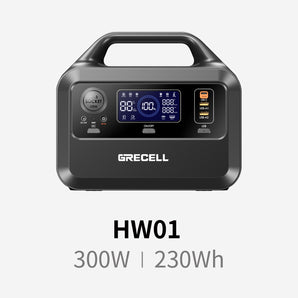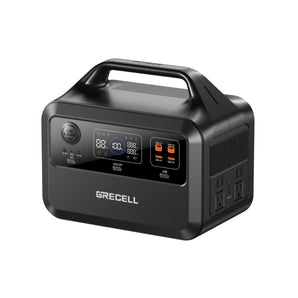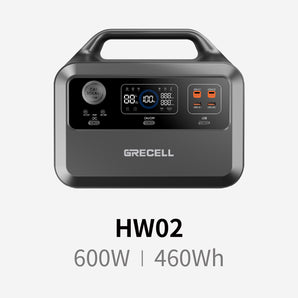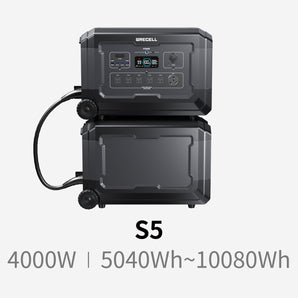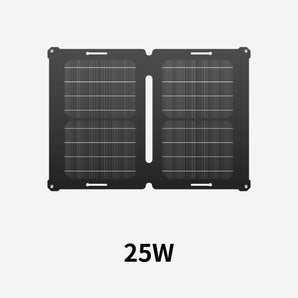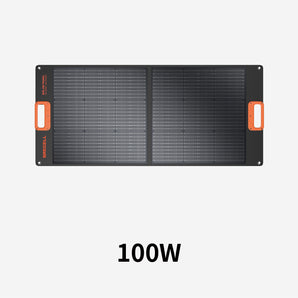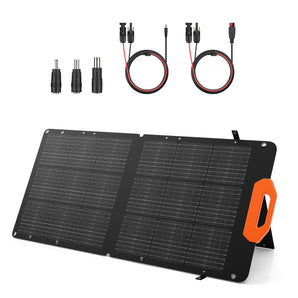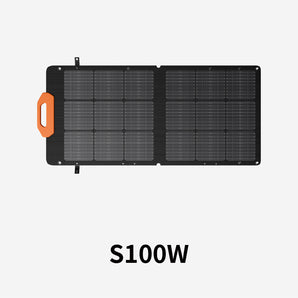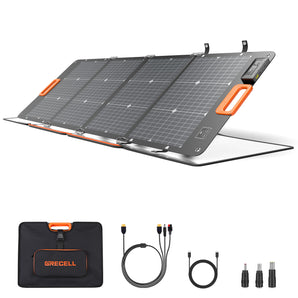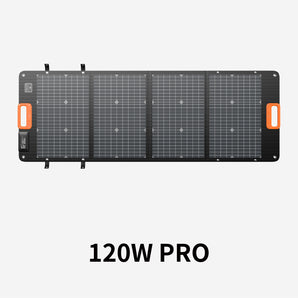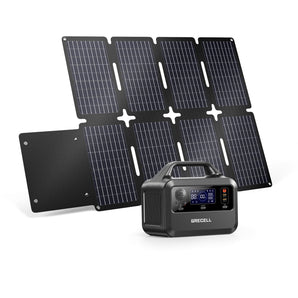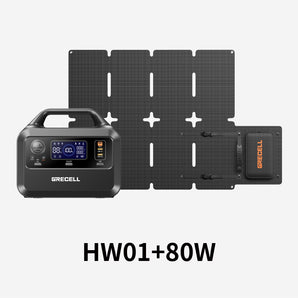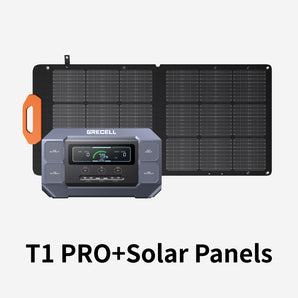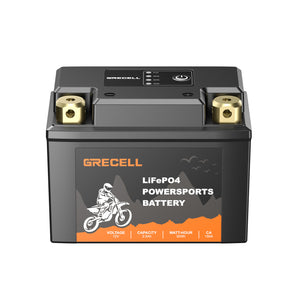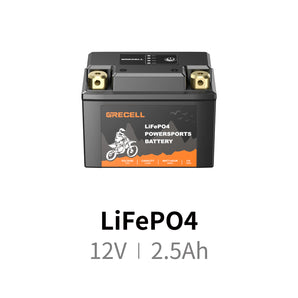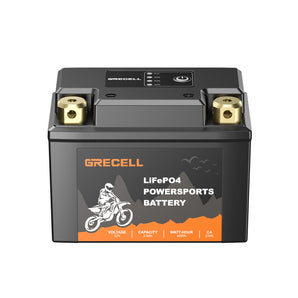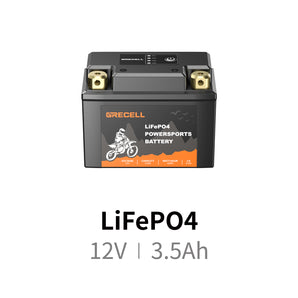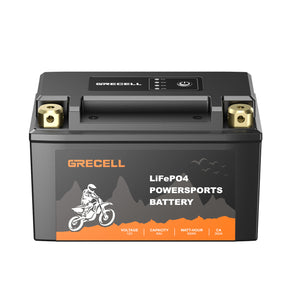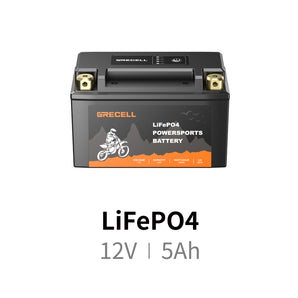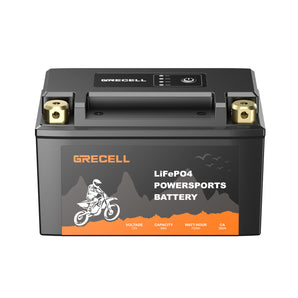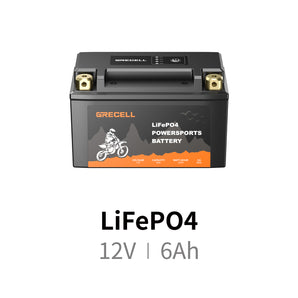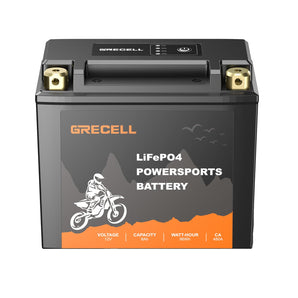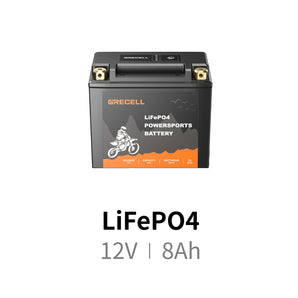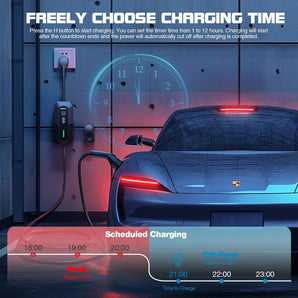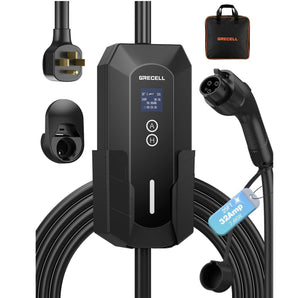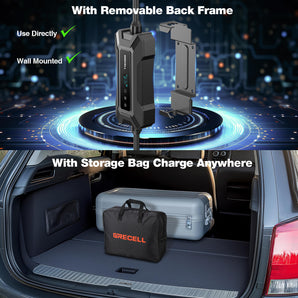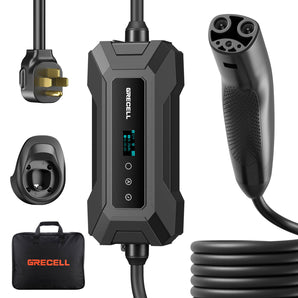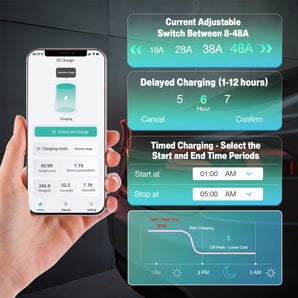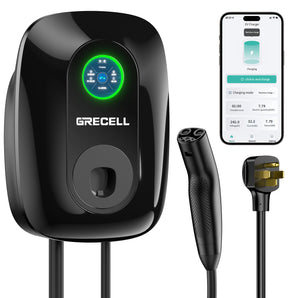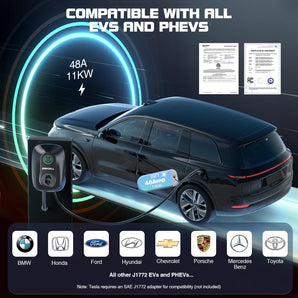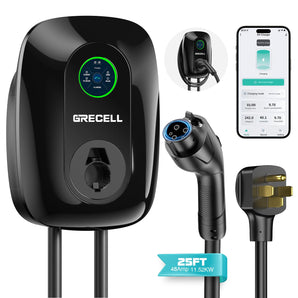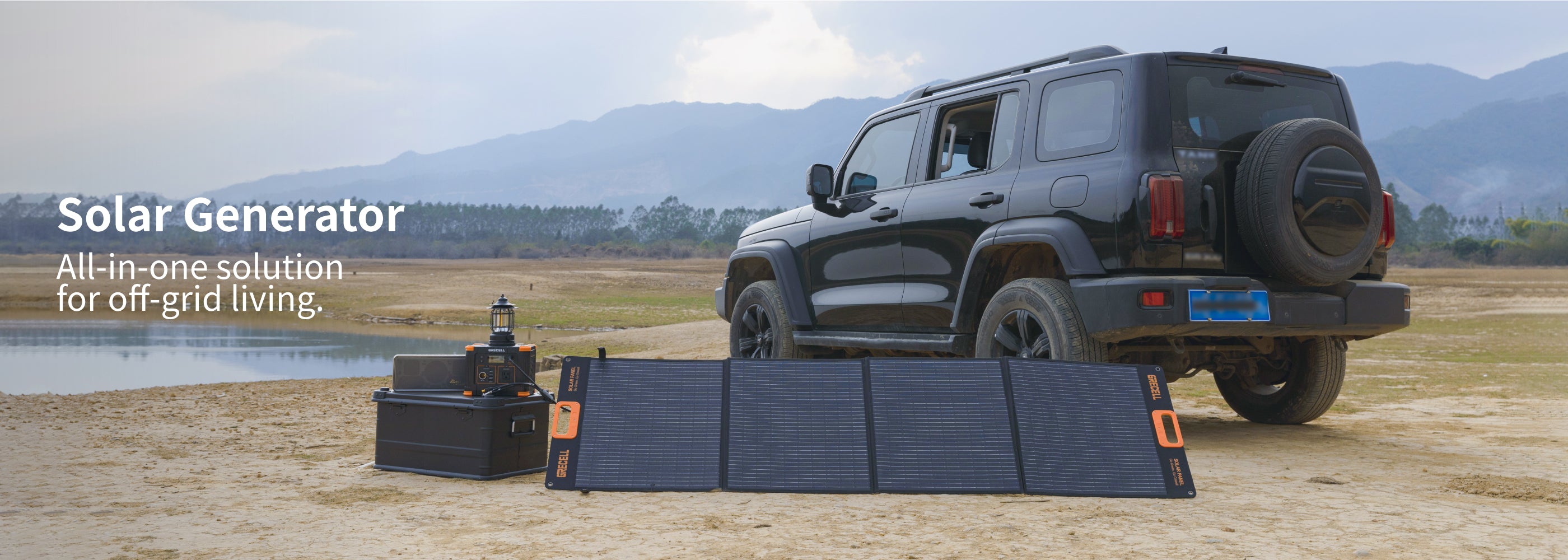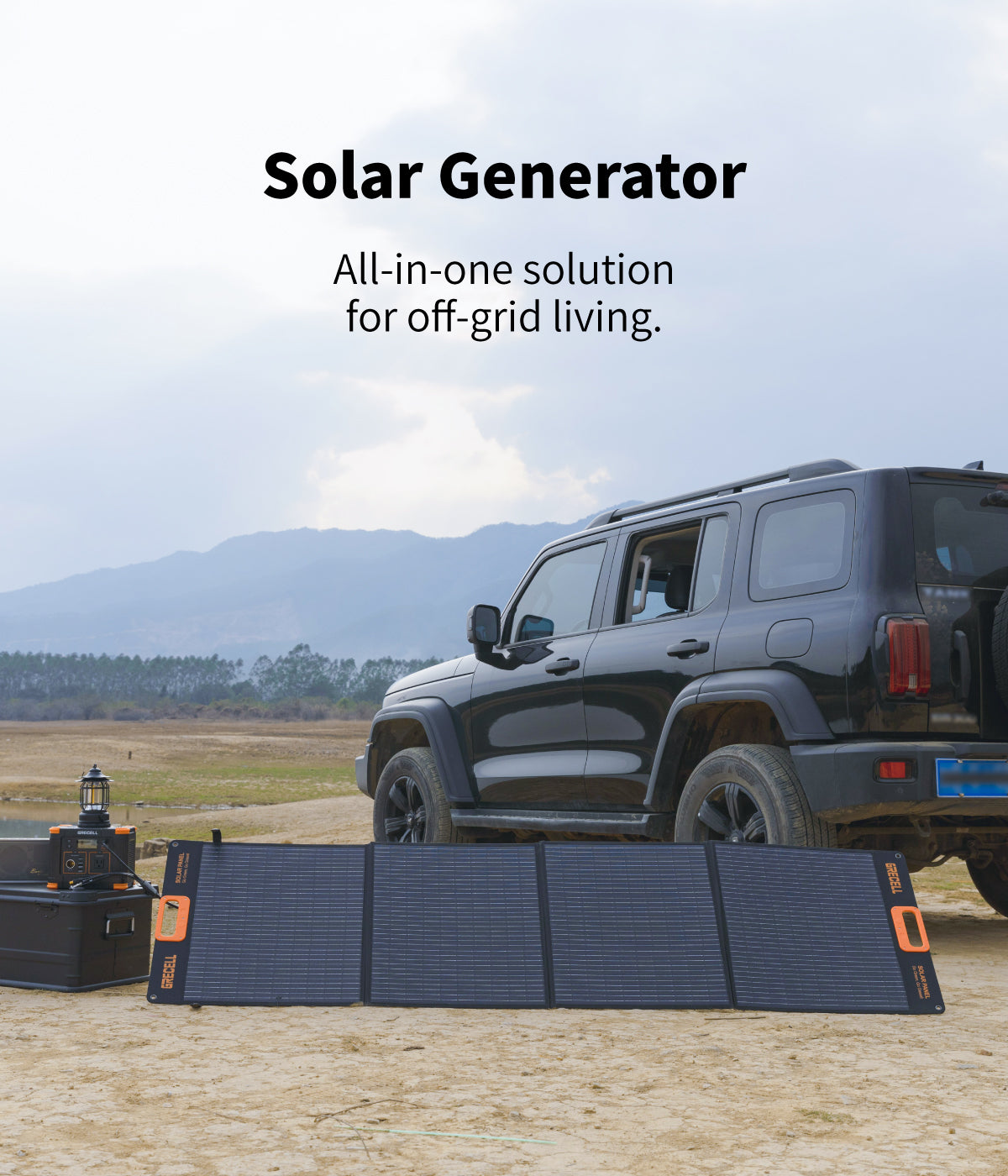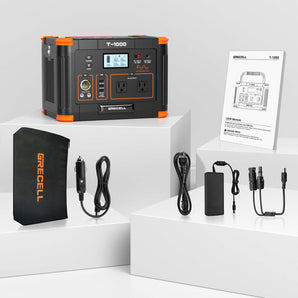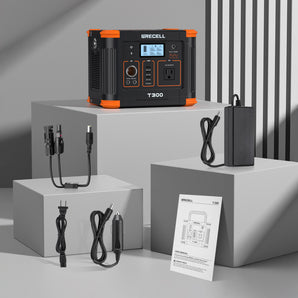What is a solar generator?
A solar generator is a portable power station designed to harness solar energy and convert it into electricity, utilizing integrated batteries and one or more solar panels. This innovative device enables users to access electricity virtually anywhere they need it, whether for outdoor adventures, emergency backup power, or off-grid living.
Frequently asked questions
Want to Know More?
Check our FAQ page.
How do solar power generators work?
Solar power generators utilize photovoltaic cells within solar panels to convert sunlight into electricity through a process called photovoltaic conversion.
When sunlight hits the solar panels, photons dislodge electrons from semiconductor materials, generating an electric current. This current is initially in the form of direct current (DC) electricity, which is then regulated by a charge controller and stored in batteries for later use.
An inverter then converts the stored DC electricity into alternating current (AC) electricity, making it compatible with household appliances and devices. With this process, solar power generators offer a renewable and sustainable energy solution by harnessing the abundant energy of sunlight for various applications.
How Much a Solar Panel Can Generate Electricity?
The amount of electricity generated by a solar panel depends on several factors, including its size, efficiency, orientation, location, and the amount of sunlight it receives.
- Size: Larger solar panels typically generate more electricity than smaller ones because they have more surface area to capture sunlight.
- Efficiency: Higher-efficiency solar panels can convert a greater percentage of sunlight into electricity.
- Orientation: Solar panels ideally should be positioned to face the sun directly for maximum exposure.
- Location: The amount of sunlight available varies based on geographic location, weather patterns, and time of year.
- Sunlight intensity: The intensity of sunlight affects the amount of electricity generated.
On average, a typical residential solar panel with an area of around 15-20 square feet can generate between 250 to 400 watts of electricity under optimal conditions. However, actual electricity production may vary.
Can a Solar Generator Power a House?
Yes, a solar generator can power a house, but the capacity of the solar generator and the energy needs of the house must be matched appropriately.
For smaller energy needs or as a backup power source, portable solar generators with battery storage can provide electricity to run essential appliances and devices during power outages or in off-grid situations. These smaller solar generators are often used for camping, outdoor events, or emergency preparedness.
For larger energy needs, such as powering an entire house, a grid-tied solar power system with sufficient solar panels, battery storage, and an inverter can be installed. These systems are designed to generate electricity from sunlight and can supply power to the entire household, including appliances, lighting, heating, cooling, and other electrical devices. Excess electricity generated during the day can be stored in batteries for use during periods of low sunlight, such as at night or on cloudy days.
However, the feasibility of using solar power to fully power a house depends on various factors, including the size of the solar power system, the energy efficiency of the house, local regulations, and the availability of sunlight in the area. It's important to conduct a thorough assessment and consultation with a solar energy professional to determine the suitability and sizing of a solar power system for powering a specific house.
How Much Is a Solar Generator?
The cost of a solar generator can vary widely depending on its size, capacity, features, and quality. Here are some general price ranges:
- Portable Solar Generators: Portable solar generators typically range in price from $200 to $1,500 USD. These smaller units are designed to provide electricity for camping, outdoor activities, emergency backup, or powering small appliances and devices. Prices vary based on factors such as battery capacity, solar panel size, inverter quality, and additional features like USB ports or AC outlets.
- Residential Solar Power Systems: For larger solar power systems designed to power an entire house, the cost can range from $10,000 to $30,000 or more, depending on factors such as system size, installation complexity, location, and available incentives or rebates. This cost includes solar panels, inverters, mounting hardware, wiring, battery storage (if applicable), and installation labor.
It's important to consider not only the upfront cost but also the long-term savings and benefits of investing in solar power, such as reduced electricity bills, potential tax incentives or rebates, increased property value, and environmental benefits. Additionally, financing options and leasing programs may be available to help make solar power more affordable for homeowners.
What is the Difference Between Portable Power Stations and Solar Generators?
Portablepower stations and solar generators both provide portable electricity, but differ in power source and dependency on solar energy. Portable power stations offer versatility in charging from various sources including solar, while solar generators primarily rely onsolar panels for charging. Portable power stations are more versatile and can store more energy, whereas solar generators are optimized for off-grid locations with abundant sunlight.


